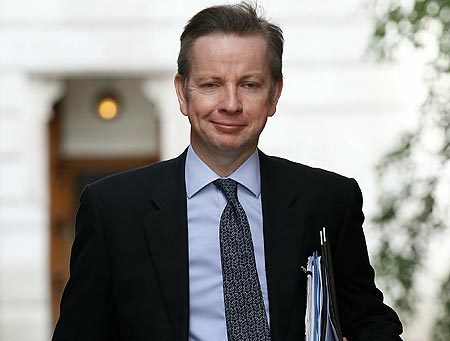 The Times has a spread on free schools (p20-p21) today (£), focusing on the model of Kunskapskolan, one of the largest Swedish chains, who are setting up shop in Britain.
The Times has a spread on free schools (p20-p21) today (£), focusing on the model of Kunskapskolan, one of the largest Swedish chains, who are setting up shop in Britain.
“Pupils set their own homework, decide their timetables, set themselves targets and work at their own speed – oh, and they clock off at 2pm,” says Greg Hurst, the paper’s education editor. He visits one of their schools in Twickenham. “At the heart of the personalised learning”, he says, lies a “one-on-one tutorial with a teacher for 15 minutes to review progress, weekly and long-term targets and timetables to meet them.” A pupil, Lisa, is quoted saying: “You talk to the teacher and you cannot embarrass yourself. If you want to say something personal, you can say it to her. I don’t want to say that in class.” And while the school day ends at 2.45pm (it’s 2pm on Mondays) “students stay until 4pm for tutorials”.
Alongside the piece is an analysis from Professor Chris Husbands, the “director-designate” from something called the Institute for Education (Toby Young wrote in the magazine about them a few weeks back, asking if they really exist). The headline is: “It may work in Stockholm, but will it work in Richmond?” and in his analysis he doesn’t give an answer. But, given his outfit’s antipathy to school liberalisation, you can guess what he thinks.
The thing is: if Gove is doing his job, it doesn’t matter what Professor Chris Husbands thinks; it doesn’t matter what the unions think; it doesn’t matter what the councils think. Gove’s free schools model is a massive and, in many ways, revolutionary transfer of power into the hands of the parents. The school provider will talk directly to them: do parents think this unusual, personalised way of teaching kids works? If they do, they will apply for their kids to go there.
Parents will be the Tsars; it doesn’t, or shouldn’t, matter what any bureaucrat thinks. It was George Tomlinson, a Labour education minister, who rightly declared in 1947 that “the minister knows nowt about the curriculum” – meaning that there are some things that central government is not fit to dictate. Education is, in other words, too important to take under centralised political control.
What happened in Sweden is that the ‘free schools’ experiment meant that new schools started to compete for pupils – not just on quality, but on pedagogical technique. Some schools, like Kunskapskolan, did indeed do the modern, liberal personalised style. But others, like another major Swedish chain, International English Schools, offered the reverse: a more traditional educational style, with 20-odd kids in a classroom all facing the teacher and reciting their times tables. This was a bit of a rebellion in Sweden, because the state-run education had gone down a very ‘progressive’ route and many parents longed for the methods that they had experienced.
Diversity is the name of the game: different pupils respond to different teaching techniques. This has been a central insight of the Swedish experiment. The tragedy of centralised education is that one size is supposed to fit all – statism means homogenisation, not specialisation. A friend of mine, who used to work for Swedish radio over here, has returned to enter her daughters into a state school that specialises in teaching Mandarin. Would you order that all Swedish kids learn Mandarin? Of course not – but different kids have different interests. The Swedish system, in effect, means that this diversity will be brought to the British state system – and parents, rather than ministers or professors, will decide if it works.







Comments